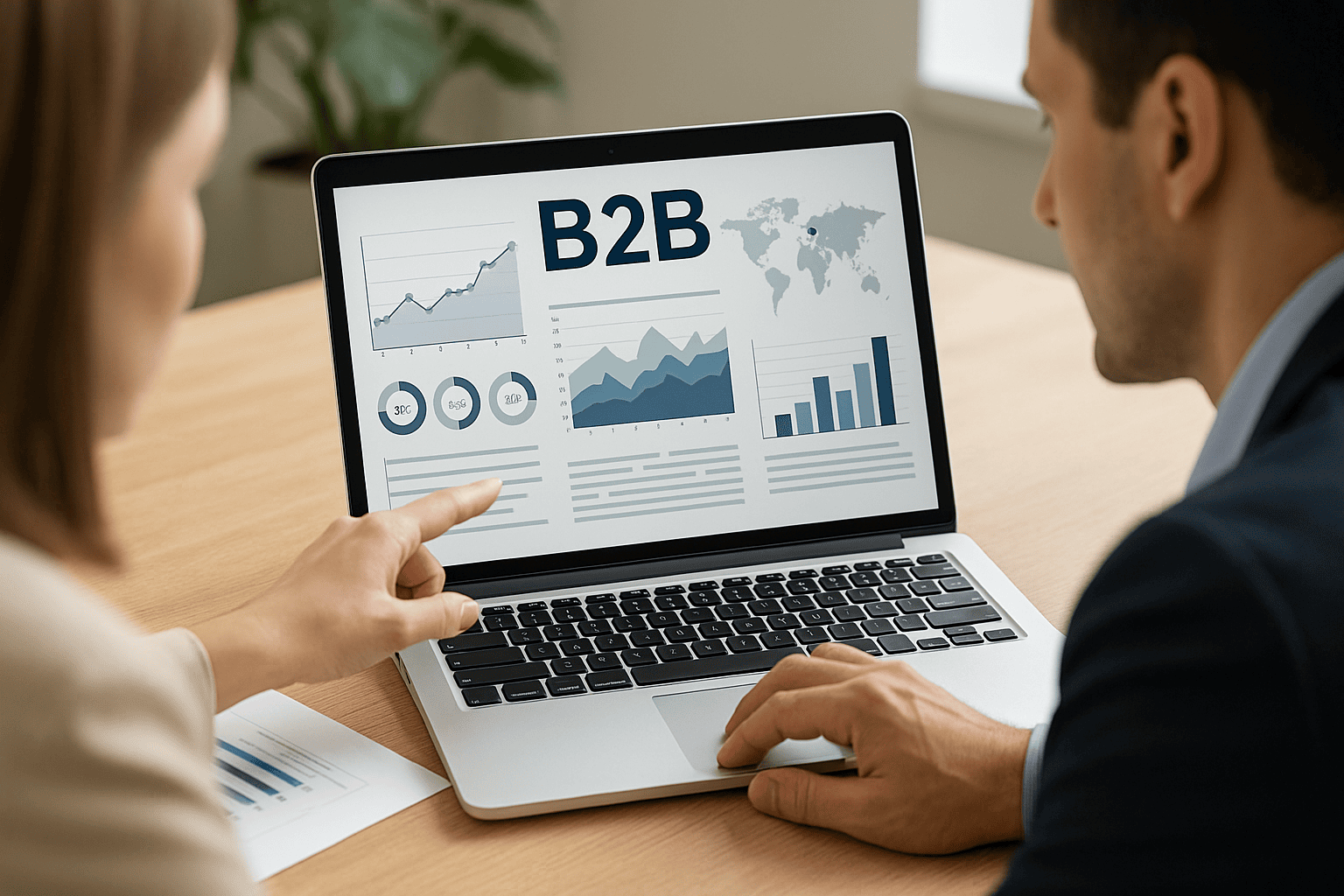B2B Affiliate Marketing Gains Traction in 2025: Why Performance is no Longer Just for B2C

Affiliate marketing has long been associated with B2C. Think product reviews, coupon sites, cashback deals, and creators pushing fashion, beauty, and gadgets to their followers. But in 2025, something interesting is happening.
B2B marketers — traditionally slower to adopt performance models — are starting to embrace affiliate partnerships in a serious way. What was once a niche experiment is now becoming a core part of B2B customer acquisition strategy.
Across sectors like software, finance, education, and consulting, more brands are building affiliate programs to drive leads, demos, and high-value signups. And as the tech improves, and buyer journeys become more trackable, the appetite for performance-based B2B growth is rising fast.
Why B2B is finally waking up to affiliate
Historically, B2B has relied on content marketing, email, and outbound sales. Affiliate felt too imprecise, too short-term, or too hard to measure for complex buying cycles.
But that’s changing for a few reasons.
First, budgets are under pressure. Marketers in every sector are being asked to prove return and lower cost per lead. Affiliate allows them to scale acquisition without huge upfront spend.
Second, tech has caught up. Platforms like PartnerStack, Impact, and FirstPromoter have made it easier to track B2B referrals — from click to qualified lead to closed deal. Attribution, once a blocker, is now a strength.
Third, creators and micro-influencers have started moving into B2B niches. Whether it’s a newsletter about CRM tools, a LinkedIn influencer sharing AI use cases, or a podcast host recommending fintech apps, content with B2B buying intent is everywhere.
Affiliate is now a natural way to monetise that influence — and brands are starting to notice.
What a B2B affiliate program looks like
A typical B2B affiliate program isn’t about flash sales or discount codes. It’s about lead quality, funnel alignment, and partner enablement.
Successful B2B programs tend to offer:
- Higher commission rates (due to longer sales cycles and higher LTV)
- Tiered payouts based on lead qualification or pipeline progression
- Longer cookie windows to accommodate multi-step decisions
- Co-branded content, webinars, or gated resources to support conversion
- Education and onboarding for affiliates with less experience in B2B
It’s not just about clicks. It’s about trust and alignment. The best B2B affiliates don’t act like marketers — they act like advisors.
Who’s doing it well
SaaS companies have led the charge. Brands like HubSpot, Notion, and ClickUp have built well-run affiliate and partner programs that reward referrals across the full journey — from free trials to paid subscriptions.
Other sectors are catching up. Online education providers are using affiliates to recruit students. Fintech apps are working with influencers to promote accounting or payroll solutions. And AI tools are offering generous commissions to consultants and community leaders who bring in qualified leads.
In each case, the affiliate acts as a multiplier — not just driving traffic, but warming up the lead before the brand ever steps in.
Challenges and watchouts
B2B affiliate marketing isn’t without its challenges.
Tracking is harder. Sales cycles are longer. Lead quality is more variable. And payouts can be complex — especially when attribution touches multiple touchpoints or sales teams are involved.
That’s why B2B brands need to invest in:
- Clear commission structures
- Transparent dashboards for partners
- Strong alignment between marketing and sales
- Education for affiliates on ICP, messaging, and qualification
It’s not set-and-forget. But when it’s done right, it works.
What this means for marketers
If you’re a B2B brand not currently running an affiliate program, 2025 might be the time to start. Begin by identifying content creators, consultants, educators, or communities that already influence your audience.
If you’re a performance marketer used to B2C, this is a chance to expand your reach. B2B deals may be slower, but they’re often more valuable — and commissions reflect that.
And if you’re an agency, publisher, or SaaS integration partner — think about how affiliate could formalise and scale the referrals you’re already making.
Final thoughts
B2B has been slow to join the affiliate world. But it’s catching up – and fast.
In a world where trust matters, budgets are tight, and performance is everything, B2B affiliate marketing offers a win-win. Brands get qualified leads without upfront risk. Affiliates get rewarded for sharing products they believe in.
It’s not about vanity metrics anymore. It’s about real outcomes. And in 2025, B2B wants in.






